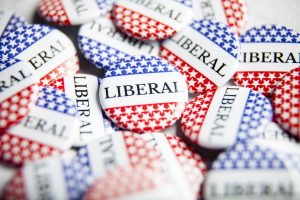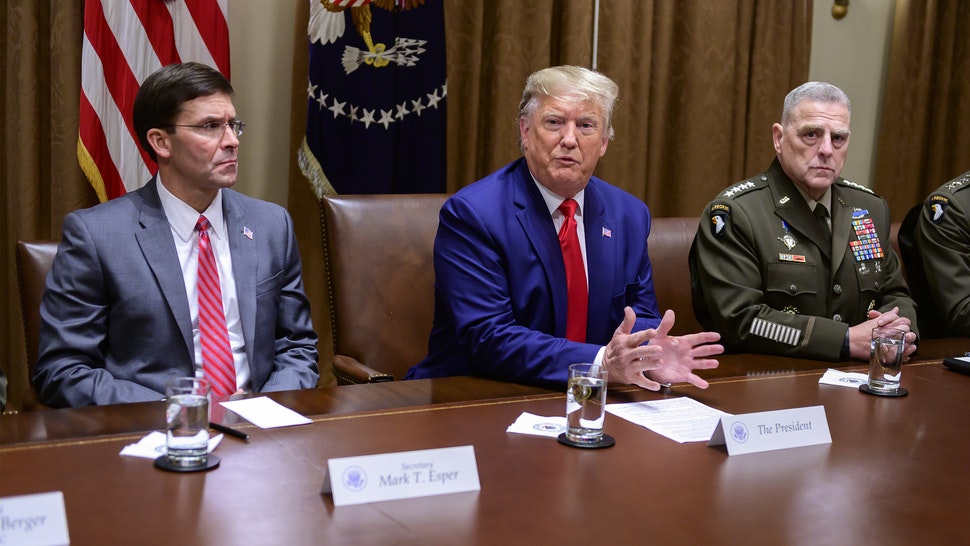
President Donald Trump
One day, we won’t have to wade through a bunch of performative junk suits filed solely to appease the ego of a septuagenarian toddler bent on salting the earth before retiring to his Florida golf course. But that day is not today. Today, we’re slogging through a hundred pages of hot mess filed by the Trump campaign in its doomed effort to overturn the will of Pennsylvania voters.
According to the New York Times, the raft of nonsense suits filed by Trump and his minions has caused major internal strife at his go-to firms Jones Day and Porter Wright Morris & Arthur, where one attorney even quit in protest. They’re embarrassed and concerned about the reputational fallout from association with their famous client. And they should be.
The latest excreta landed in the Middle District of Pennsylvania’s punchbowl last night. Donald J. Trump for President, Inc. is suing Kathy Boockvar, the Secretary of Commonwealth, and the Boards of Election in Allegheny, Centre, Chester, Delaware, Montgomery, Northampton and Philadelphia Counties to prevent the state from certifying the results of last week’s election. Or, in the alternative, if the court would just throw out all the absentee ballots from those populous counties where the campaign says poll watchers had to stand too far back, that would be cool, too.
No, that’s not even a joke.
WHEREFORE, in addition to any other affirmative relief that the Court may deem necessary and proper, Plaintiffs ask this Court to enter judgment in their favor and provide the following alternative relief:
i. An order, declaration, and/or injunction that prohibits the Defendant County Boards of Elections and Defendant Secretary Boockvar from certifying the results of the 2020 General Election in Pennsylvania on a Commonwealth-wide basis;
ii. As an alternative to the first request for relief, an order, declaration, and/or injunction that prohibits Defendants from certifying the results of the General Elections which include the tabulation of absentee and mail-in ballots for which Plaintiffs’ watchers were prevented from observing during the pre-canvass and canvass in the County Election Boards;
They’re actually arguing that mail-in ballots themselves violate the Equal Protection clause because in-person voting subjects citizens to greater scrutiny than voting by mail, and thus the 2.6 million mail-in ballots cast in Pennsylvania must be tossed out when allocating the state’s 20 electoral votes.
In the Trump campaign’s telling, any minor deviation in voting procedures between counties amounts to a violation of Equal Protection. So elections officials in “Democratic-heavy counties” who visually inspected sealed ballots and allowed voters who had submitted defective ballots, that is without a signed exterior envelope or an interior “security envelope,” a chance to fix it were actually violating the rights of every other voter in the state.
The Trump campaign insists that county officials who refused to allow voters to cure defective ballots were acting appropriately. But officials who allowed eligible voters to correct errors and cast their ballots — a procedure allowed under Pennsylvania law — were actually violating the Equal Protection rights of residents of other counties by diluting their votes … with legally cast ballots from their fellow Pennsylvanians. And no, the Trump campaign will not be suing the elections officials who failed to allow ballot curing, because letting more people cast ballots is very much not their bag, baby.
The Trump campaign has hung its hopes in Pennsylvania on getting late-arriving absentee ballots tossed out. Attorneys General from several Republican states have joined the suit, including from Kentucky, where ballots mailed by November 3 are accepted for three days after the polls closed. But even if they somehow convinced the Supreme Court to invalidate the late-arrivers, it wouldn’t substantially erode Biden’s 45,000-and-counting margin.
As Bloomberg points out, none of the suits are alleging sufficient error to overturn the apparent results. Republicans are challenging fewer than 200 votes in Maricopa County, as Biden’s margin in Arizona tops 17,000 votes. Even if the Trump campaign’s claims of 3,000 illegal voters in Nevada were true — and they most certainly are not — it’s not going to make up for their candidate’s 36,000-vote deficit.
The Trump campaign can kick up a fuss and pump lies about voter fraud into America’s blood stream, but it won’t change the math. And whatever play they have planned in Pennsylvania to prevent a certification of the count and give the Republican-controlled legislature a chance to nominate its own slate of electors isn’t going to work, either.
In part because of this guy.
And in part because of that pesky math. Losing Pennsylvania’s 20 electoral votes would put Biden at 286. The GOP would have to flip Georgia and Arizona or Nevada. It’s not going to happen.
So batten down the hatches for an ugly, destructive 71 days until the inauguration. But we all know how this story ends.
Elizabeth Dye lives in Baltimore where she writes about law and politics.





 Kathryn Rubino is a Senior Editor at Above the Law, and host of
Kathryn Rubino is a Senior Editor at Above the Law, and host of 














